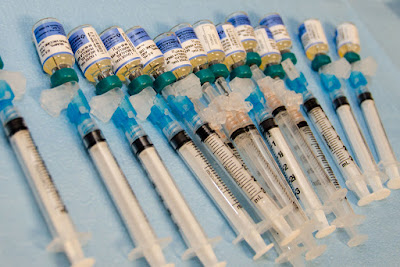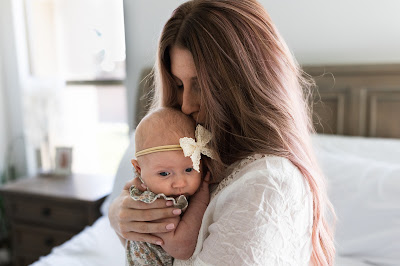Embrace Your Crutches
Embrace Your Crutches
Too often I would hear the words "ditch your crutches" when overcoming anxiety.
For those with anxiety, you know what I mean.
The common phrase: "Stop leaning on your crutches" is often used in an attempt to help anxiety sufferers 'face their fears'; therefore overcoming anxiety in a swift manner. Although such a phrase was created with good intentions, instead, the results are more often discouraging, disheartening, and can even slow the healing process.
There's a reason why doctors recommend crutches for assisting patients to walk.
Could you imagine having a broken leg, tightly encased in a protective cast, and you were told to simply "ditch your crutches"? Not only would that slow the healing process, but it may even cause further injury.
My Safety Crutches
Below is a list my crutches; some of which I have completely healed from and no longer need, while others I continue to use as they aid in my path to recovery:
ᕬ Leaving doors open
- I had a hard time being in any room with a closed door (especially one that didn't have a window).
ᕬ Sound immersion
- For a time, I was unable to be still in a quiet environment without feeling extremely anxious.
- In fact, when Keric and I were traveling, I would bring a noise machine to help me feel more calm at night. When staying in a hotel, either the TV or noise machine had to be on for me to be brave enough to close my eyes.
- Although sound was something I needed to cope, counterintuitively, I was fearful of using earbuds for music. It was only until recently that I actually started to use earbuds again (starting with only one ear).
ᕬ Light
- I became very fearful of the dark.. Night-times were the hardest for me because there was neither sound nor light. I had to sleep with a nightlight of some kind. Some nights, after multiple panic attacks, I refused to close my eyes unless the light was on (my poor husband).
- Movie theaters, my once favorite option for entertainment, became an anxiety-filled experience. Being surrounded by darkness made me extremely restless and nervous.
ᕬ Not being alone
- Being alone scared me for a long time. I started going to my family's home after school on weekdays to have company. I feared that if I passed out when I was alone that no one would be there to save me. Having a panic attack is terrifying, and having one alone was even more unbearable.
- I couldn't take a bath without my husband checking on me every five minutes. I was afraid of passing out in the tub and drowning. My once favorite and relaxing "me-time" of taking a hot bubble bath to help me relax, had turned into another stress-filled activity. I wouldn't shower or go to the bathroom without the door being slightly cracked open.
- Falling asleep was the hardest. I was afraid that if I closed my eyes, I would never wake up again. Something that gave me peace was touching my husband while I drifted into sleep.
ᕬ Avoiding cardio
- Anything that would increase my heart rate made me nervous i.e. stairs, exercising, etc. I chose other types of exercise such as stretching for a while.
ᕬ Avoiding excess stimuli
- Places like restaurants would make me nauseous and dizzy. Although I was surrounded by groups of people which helped me feel more comfortable, the excess noise and lights subconsciously increased my heart rate.
ᕬ Medication
- I'm not sure how much longer I could've made it without the saving properties of my anti-anxiety and sleep medications!
ᕬ Therapy
- Cognitive behavioral therapy has changed my life for the better in so many ways.
Find peace during healing
It is not shameful to use crutches when healing from a physical trauma, so why should it be shameful to use crutches when overcoming anxiety, panic disorder, or depression?
When a child learns to ride a bike, isn't the ride much smoother and less traumatic when training wheels are first applied vs attempting without? Some children require more time before feeling comfortable and confident enough to try riding a bike on their own, but aren't they still learning throughout the process?
While one person may have already overcome a mental health illness, another may still be struggling.
That's okay
On the bumpy road of bicycle training, someone is still cheering you on from behind, shouting and encouraging for you to bravely keep pedaling..... until one day those training wheels come off., and you ride free.
Recovery is hard work, but with some patience, the journey should be peaceful and without self-judgement or self-shaming.
Although I have been able to let go of several of my safety crutches since my mental illness, my healing journey still continues.. I still have a couple crutches that help me to walk, but I am confident that I am healing throughout my recovery process.
Embracing Your Crutches
However important safety crutches are for healing; embracing them is not the same as relying on them as a long-term solution.
While a hard cast and crutches support the body-- there is an even-more-so essential personal responsibility, which requires: adequate sleep, physical therapy, home exercises, proper nutrition, positivity, and more for bone repair to occur.
The same concept applies to mental health. While crutches offer essential, temporary support, healing also requires effort on our part...
For Example:.
▻ Therapy & practice
▻ Adherence to medications
▻ Attaining support
▻ Healthy eating & exercise
▻ Practicing a consistent sleep routine
▻ Positive thinking
▻ Facing fears a little at a time
▻ Not giving up
▻ Mindfulness practice
▻ Making an effort to go outside daily
▻ etc.
A broken bone is not damaged forever, and neither are you ♡
With time, the body repairs itself as it is properly cared for.
Don't wait for peace to come to you⎼⎼create it yourself throughout your healing journey.
﹎﹎﹎﹎﹎﹎﹎﹎﹎﹎﹎﹎﹎﹎﹎﹎﹎﹎﹎﹎﹎﹎﹎﹎﹎﹎﹎﹎





Comments
Post a Comment